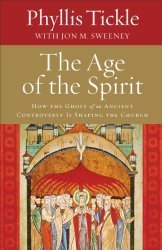Evangelical Protestants Have Lost Touch with the Contemplative Aspects of Their Faith
I received an email from Mary, who listened to my audio devotional titled, “Our Protestant Heritage.” She brings up a critical question that I’d like to respond to publicly.
Mary writes, “I don’t have a Protestant heritage. I have a Catholic heritage. I thought the devotional made it sound like my faith didn’t count. But I love Jesus, talk to Him personally, daily; I read the scriptures; I tithe and I listen to God. I felt as if your characterization was exclusionary. I don’t understand it. So I stopped reading the book, The Turning, for a long time. I picked the book back up and finished it on Easter. It was wonderful. But I haven’t figured out how to process this Protestant discussion.”
I have wanted to address this very issue since completing The Turning and the accompanying devotional lessons, but I was not sure how. Mary’s email, in truth, was an answer to a prayer.
Let me begin by saying that I am married to a Catholic, a wonderful woman who has taught me more about faith than any person alive. My mother and my sister have both converted to Catholicism. I have recently been asked to write a series for the largest Catholic publisher in the United States.
But this particular book, and the devotional lessons, were written for a conservative U.S. Christian publisher. And the reason why I felt called to write on this subject, the one specific intent above all others, was because far too many evangelical Protestants have lost all touch with the contemplative aspects of our faith and our Christian heritage.
Too often these days, such people see the whole issue of spiritual contemplation as being a Catholic concept. And this simply is wrong. It hurts me to hear it referred to in this way from the pulpit, because it reflects a ‘majority opinion’ within many churches that does not jibe with who we are, and what has formed a foundation of our Christian heritage from the very beginning.
This devotional lesson is first and foremost aimed at the Protestant believer who has most likely never had contact with the message of contemplation. In order to break through this barrier, it was necessary to specifically address their incorrect assumption that the discipline of attentiveness is Catholic in nature.
First of all, the majority of lessons that shape Christian contemplation predate what we today refer to as the Catholic church. I suppose the better way to speak of this is by referring to today’s structure as the Roman church, as opposed to the Eastern church or Orthodox church.

 If you are interested in how this issue specifically relates to the discipline of contemplation, may I suggest you read a truly wonderful book, The Age of the Spirit, by Phyllis Tickle, former Senior Religion Editor of Publishers Weekly.
If you are interested in how this issue specifically relates to the discipline of contemplation, may I suggest you read a truly wonderful book, The Age of the Spirit, by Phyllis Tickle, former Senior Religion Editor of Publishers Weekly.
In any case, the whole concept of Christian contemplation is grounded in the Old Testament, and given its first formal shape in the time of persecution during the second and third centuries.
But what is far more vital for today’s Protestant audience, the people who, in my opinion, need these lessons the most, is that the discipline of attentiveness – what today is referred to in the Catholic community as contemplation – was a vital component of the Protestant movement from the very beginning.
That is why I wrote the second lesson as I did. My intention was never to exclude the Catholics. In later lessons more than half the examples I used in describing life-changing revelations came from Catholic believers.
There are any number of wonderful texts from Catholic sources, including many contemporary writers, about the wonders of spiritual silence. And yet these are simply not known or discussed in many Protestant churches. It is tragic and unnecessary, in my opinion.
Their walk would be richer for including this. Mine certainly has been. And in order to reach these people, I addressed their incorrect assumptions at the starting gate. The founders of the Protestant denominations both practiced contemplative prayer and urged it among their followers.
We should all do so today, and learn to listen better.










